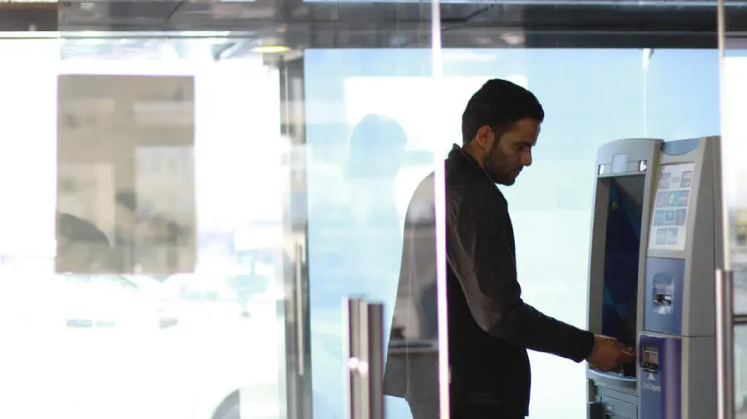Global threats such as climate change, conflict, and the COVID-19 pandemic have disproportionately impacted individuals who have historically faced entrenched inequalities and structural vulnerabilities. Among those most severely affected are survivors of forced labour and migrant workers who have experienced lost income due to reduced crop yields, forced displacement, movement into hazardous work like mining, and homelessness.
While financial inclusion – access to formal banking services and products – can strengthen the resilience of these groups, research by the Finance Against Slavery and Trafficking (FAST) initiative reveals that many remain unbanked, increasing their vulnerability to modern slavery. Access to meaningful and affordable financial products and services can reduce risks and aid the financial recovery and financial health of survivors.
Unlocking Financial Access: Addressing Challenges
FAST found that migrant workers and forcibly displaced persons face several challenges preventing them from opening a bank account: they often lack a permanent address or the required ID, present thin or bad credit history (often as a consequence of exploitation), and are forced to contend with legal and regulatory hurdles like stringent due diligence and know your customer (KYC) policies. Given their vulnerability to modern slavery and exploitation, it is imperative to design financial products and services that accommodate their needs. Encouragingly, there are innovative solutions that financial providers can adopt/adapt: digital cash transfers, digital remittances, and simplified KYC and customer due diligence requirements. For instance, UNHCR is leading a pilot blockchain payment solution for digital cash distribution to internally displaced persons (IDPs) and other war-affected people in Ukraine.
As a survivor leader, financial services and inclusion transformed my life. A bank account gave me access to study loans and payments, empowering me to build a resilient future beyond exploitation.
Accessibility and meaningful usage of products lie at the heart of transformative financial services and improving access to finance for underserved populations. By designing products for the most vulnerable, the financial sector can create solutions that resonate with every individual, regardless of their circumstances. Inclusive financial products and services therefore need to be adapted to local contexts and designed to meet the diverse needs and preferences of customers. To protect vulnerable populations, financial services should also be continuously monitored and evaluated to ensure that they adhere to regulatory and rights-based provisions, uphold data privacy/consumer principles, and safeguard against predatory financial practices.
Overcoming Challenges: Spearheading Financial Access for Survivors
Survivors of modern slavery remain vulnerable to re-victimization even after their exploitation has ended – and financial inclusion has been identified as a critical means to help prevent re-exploitation, and support survivors’ recovery, socioeconomic reintegration, and access to remedy. FAST’s Survivor Inclusion Initiative (SII) has been committed to this cause since its inception in 2019. Through strategic partnerships with 14 banks across the US, UK, and Canada, the SII has facilitated more than 3,000 basic banking services tailored specifically for survivors of modern slavery and the barriers they face, such as the use of alternative addresses and IDs.
For example, Wells Fargo, a participant in the SII, has worked closely with social service organizations to open almost 100 checking accounts for survivors. Each account is managed by trained bankers who are equipped to meet survivors’ specific needs and guide them through the onboarding process, while adhering to regulatory requirements. Insights drawn from the SII demonstrate the importance of trauma-informed approaches and financial education services, empowering survivors to understand their financial rights and access available resources. Lester Joseph, Head of Financial Crimes Intelligence, commented: “Through this programme and by providing basic banking tools and services, we’re able to help survivors reclaim and rebuild their lives.”
The SII has helped Wells Fargo to segment their customers’ unique needs and build customized programmes while fulfilling regulatory obligations. Similarly, Scotiabank, another SII participating bank, has applied the SII model – of partnering with civil society organizations — to extend services to other vulnerable groups, such as survivors of domestic violence.
Access to safe banking has been instrumental in ensuring my clients’ financial stability and protection against re-exploitation... It seems to be empowering to my clients to become a bank “customer,” fully integrated into the financial section.
FAST has employed the SII model in other regions, including Mexico and Europe, to demonstrate that financial institutions can safely serve customers traditionally seen as high risk, such as refugees from Ukraine. In Canada, Scotiabank worked closely with financial regulators to develop mechanisms to verify the identification of a survivor who may not have government-issued ID. In turn, this practice helped establish joint guidance issued by the Financial Consumer Agency of Canada (FCAC) and Financial Transactions and Reports Analysis Centre of Canada (FINTRAC) for other financial institutions on how to onboard survivors.
In parallel, it’s encouraging to see the Debt Bondage Repair Act in the United States and the Protection from Coerced Debts Incurred in relation to Human Trafficking Act (Bill 41) in Canada, which enables survivors to block adverse credit information resulting from human trafficking from their credit reports.
Securing access to financial compensation/remedy
Securing access to finance is an initial step in the financial recovery of survivors. Another critical aspect is enabling survivors access to financial compensation/remedy owed to them. For instance, some sex-trafficked children experience poly-victimization when they are also victims of child sexual abuse material (CSAM) production. US federal law mandates offenders of CSAM to pay a minimum of $3,000 in restitution for each CSAM victim. In practice, however, providing this compensation can be challenging as minors may not have access to financial services, and banks may not know how to comply. In turn, MVA has worked alongside US SII participating banks, Truist and Ally, to meaningfully provide appropriate banking services to CSAM survivors. This follows MVA representing victims seeking restitution against defendants in federal criminal cases who traded survivors’ child abuse imagery, and helping to ensure that victims are provided safe and formal financial access to the restitution. Similar financial inclusion actions can be leveraged by institutions in support of CSAM and sex trafficked minors.
Indeed, FAST has found that it can be challenging for survivors to meaningfully benefit from their compensation if they are financially underserved or lack financial literacy to manage it. Two examples demonstrate how these challenges can be overcome. Thubutu Africa, a Uganda-based NGO providing financial literacy support, helped improve the financial and digital literacy skills of survivors who received a large compensation sum via mobile money accounts – preventing them from the real prospect of being re-exploited by banking agents and community members. They warned female survivors not to share their mobile money account PINs/passwords with close relatives or accept random calls, for instance, and taught survivors the basics of mobile money transfers. On the other side of the Atlantic Ocean, MVA has an online financial wellness tool which can help survivors understand how to build good credit and ensure sustainable financial wellness.
If implemented with appropriate safeguards, therefore, FAST experience suggests that comprehensive financial inclusion – encompassing prevention and remedy – can profoundly impact the lives of vulnerable populations, including the victims and survivors of modern slavery, in positive, transformative ways.
Suggested citation: Maha Khan, Loria-Mae Heywood., "Financial Inclusion: A Path to Recovery and Resilience for Survivors of Modern Slavery," UNU-CPR (blog), 2024-04-16, 2024, https://unu.edu/cpr/blog-post/financial-inclusion-path-recovery-and-resilience-survivors-modern-slavery.


